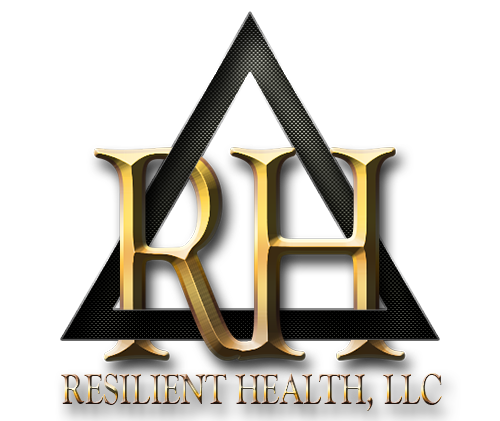Why High-Protein Diets Are Superior – The Science Behind Muscle Retention and Fat Loss
For years, fitness enthusiasts, bodybuilders, and researchers have championed high-protein diets as the gold standard for muscle growth and fat loss. But why? Is it just hype, or does science back up these claims? Let’s break down the hard facts behind why high-protein diets outperform other dietary strategies when it comes to optimizing body composition.
1. Protein’s Role in Muscle Retention and Growth
Muscle protein synthesis (MPS) is the process by which the body builds new muscle tissue. To maintain and grow muscle, protein intake must match or exceed the rate of muscle protein breakdown (MPB). Studies have shown that a high-protein diet enhances MPS, leading to better muscle retention and growth, particularly in individuals who engage in resistance training.
Key Study:
🔬 A study published in The Journal of Nutrition found that individuals consuming at least 1.6 grams of protein per kilogram of body weight experienced greater muscle mass retention and growth compared to those consuming lower amounts (Morton et al., 2018).
💡 Takeaway: Higher protein intake preserves muscle during weight loss and promotes growth during strength training.
2. High-Protein Diets Increase Fat Loss
One of the biggest challenges in fat loss is maintaining muscle mass while shedding body fat. Protein plays a key role in protecting lean muscle tissue and boosting metabolic rate, making it a superior macronutrient for fat loss.
The Science Behind Protein and Fat Loss:
✅ Higher Thermic Effect of Food (TEF):
Digesting protein requires 20-30% of its caloric value, compared to 5-10% for carbohydrates and 0-3% for fats (Jäger et al., 2017). This means your body burns more calories processing protein than any other macronutrient.
✅ Protein Increases Satiety and Reduces Cravings:
A high-protein diet helps control hunger by regulating appetite-controlling hormones such as ghrelin (the hunger hormone) and GLP-1, peptide YY, and cholecystokinin (which promote satiety) (Paddon-Jones et al., 2008).
✅ Prevents Metabolic Slowdown:
When cutting calories, the body often lowers metabolism in an attempt to conserve energy. A higher protein intake minimizes this effect by helping maintain muscle mass and metabolic rate.
Key Study:
🔬 A randomized trial in The American Journal of Clinical Nutrition found that individuals on a high-protein diet (25-30% of daily calories from protein) lost more fat and retained more muscle compared to those on a lower-protein diet (20% or less) (Leidy et al., 2015).
💡 Takeaway: A high-protein diet enhances fat loss, prevents muscle loss, and keeps you full longer, making it ideal for weight management.
3. Protein Preserves Muscle During Caloric Deficits
One of the biggest mistakes people make when dieting is cutting protein intake too low. When calories are restricted, the body may break down muscle tissue for energy. A higher protein intake counteracts this effect, helping dieters retain lean mass while burning fat.
How Much Protein Do You Need in a Deficit?
Sedentary individuals: 0.8g per kg (0.36g per lb) – The bare minimum.
Active individuals: 1.2-1.6g per kg (0.55-0.73g per lb).
Strength athletes or those cutting weight aggressively: 2.0-2.4g per kg (0.9-1.1g per lb) to prevent muscle loss (Hector et al., 2018).
💡 Takeaway: If you're dieting or in a caloric deficit, increasing protein intake is crucial to prevent muscle loss and maintain metabolic function.
4. Debunking Myths About High-Protein Diets
Despite the overwhelming benefits, high-protein diets often face skepticism. Let’s address the common myths:
❌ "High-protein diets are bad for your kidneys."
✅ Truth: In healthy individuals, high protein intake does not harm kidney function. Research in the Journal of the International Society of Sports Nutrition confirms that even long-term high-protein consumption does not negatively impact kidney health in people without pre-existing conditions (Antonio et al., 2018).
❌ "Protein causes osteoporosis by leaching calcium from bones."
✅ Truth: Studies show higher protein intake actually improves bone health by increasing calcium absorption and reducing fracture risk (Bonjour, 2011).
💡 Takeaway: High-protein diets do not harm kidney function or bone health in healthy individuals.
5. How to Implement a High-Protein Diet Effectively
To maximize the benefits of a high-protein diet, consider these practical tips:
✅ Choose High-Quality Protein Sources:
Lean meats (chicken breast, turkey, lean beef)
Fish (salmon, tuna, cod)
Eggs and egg whites
Dairy (Greek yogurt, cottage cheese)
Plant-based sources (lentils, beans, tofu, tempeh)
Protein powders (whey, casein, or plant-based options)
✅ Distribute Protein Evenly Throughout the Day
Rather than consuming all your protein in one meal, spread it across 3-5 meals to optimize muscle protein synthesis.
✅ Consume Protein Around Workouts
Pre-workout: 20-30g of protein for sustained energy.
Post-workout: 30-40g of protein to boost muscle recovery.
💡 Takeaway: To maximize muscle retention, choose high-quality proteins, distribute intake throughout the day, and prioritize protein around workouts.
Conclusion: Why High-Protein Diets Win
The evidence is clear: a high-protein diet is superior for muscle retention, fat loss, and overall metabolic health. Whether your goal is to lose fat, build muscle, or simply stay lean and strong, prioritizing protein is the smartest nutritional strategy.
Key Takeaways:
✔ Builds and maintains muscle mass (critical for performance & longevity).
✔ Boosts fat loss through a higher metabolic rate and satiety.
✔ Prevents muscle breakdown in caloric deficits.
✔ Does not harm kidney or bone health in healthy individuals.
So, if you're looking to improve body composition, ditch the low-protein diets and start prioritizing protein!
What’s Your Protein Intake Like?
Have you tracked your protein intake? Most people are way under where they should be. Schedule a free consult with one of our health professionals.
